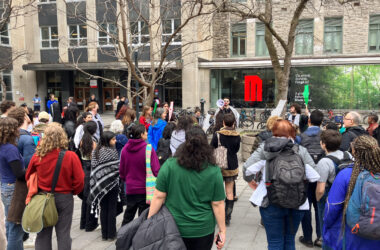The apartment search is ramping up for many as Quebec’s July 1 moving date looms closer. The Tribune brings you a guide to understanding and invoking your rights as a tenant when renting an apartment.
What are the regulations around landlords increasing rent?
Landlords must give written notice of their intention to increase rent three to six months before the end of the lease. If they do not meet this deadline, the rent must stay the same the following year. Each year, the Tribunal administratif du logement (TAL) recommends a percentage by which landlords adjust rent, but does not set a hard cap on rent increases. The Tribunal suggests tenants negotiate with their landlord if they think the rent increase is too steep and allows tenants to formally contest increases with the TAL if negotiation does not work.
What other housing regulations exist?
- Landlords cannot require a security deposit. They can, however, request the first month’s rent early when the tenant signs the lease.
- Landlords must give 24 hours notice before entering a tenant’s apartment, except in the case of an emergency. Visits should be between 9 a.m. and 9 p.m., and work should be done between 7 a.m. and 7 p.m.
- Landlords must respond to unsanitary conditions—for example, a pest infestation or serious plumbing problem. If a landlord does not intervene promptly, the tenant can call 311 to have the city intervene to ensure decent living conditions.
- Landlords must perform urgent repairs—for example, fixing a broken front door that will not lock. If a tenant cannot get in touch with their landlord over an urgent matter, they are allowed to take reasonable action and demand reimbursement from the landlord.
- If a landlord wishes to repossess an apartment that has a lease of over six months, they must give notice at least six months before the lease ends. In the case of a six-month lease, they must give notice at least one month before the lease ends.
- Tenants are able to break their lease if they are no longer able to live in the dwelling due to a disability, if they or their child is the victim of domestic abuse, or if they have been allocated low-rent housing.
What is Bill 31?
On Feb. 21, Quebec’s Bill 31, “an Act to amend various legislative provisions with respect to housing,” came into effect. Among other provisions, the Bill means that lease transfers—the ability to sign over one’s lease to another person, protecting the rent from hikes—can now be stopped by landlords without reason. Previously, landlords had to have “serious concerns” to deny a transfer. The Coalition of Housing Committees and Tenants Associations of Quebec and other organizations that advocate for tenants have protested the Bill, saying that limiting lease transfers will dramatically worsen the already critical housing crisis in Montreal. In 2023, the CBC reported that Quebec’s unhoused population had nearly doubled in four years.
Where can one get legal information and advice on housing law?
The Legal Information Clinic at McGill (LICM) and the StudentCare legal care program are both valuable resources for students who believe their housing rights have been violated. The LICM is staffed by McGill law students and provides legal information and know-your-rights workshops for students and the Montreal community. The StudentCare legal care program is available to students through the Students’ Society of McGill University (SSMU) insurance plan for an opt-outable $30 per year. The program allows students to access both legal advice and legal representation.
The TAL can be reached by phone or email. Appointments at the Tribunal’s information offices can be booked online.
How does one file a complaint if their rights are being abused?
It is a good idea to make it clear to your landlord that you know your rights. If they still do not take corrective action to respect your rights, you can take the issue to the TAL—a process the LICM, the StudentCare legal care program, or the TAL themselves are equipped to help you navigate. An application can be filed online, in person, or by mail.









